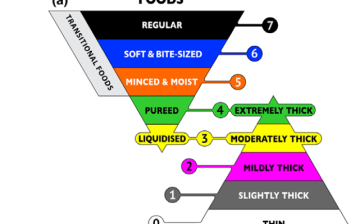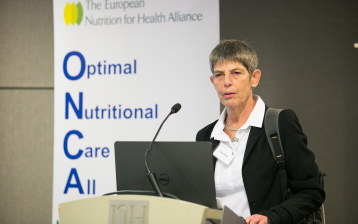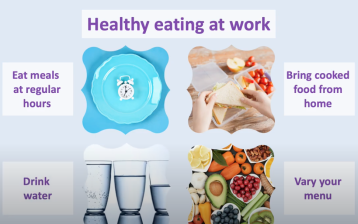
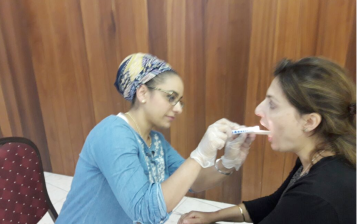
35% of the elderly in long term care suffer from oral health problems which can lead to malnutrition. Oral health problems include chewing and swallowing problems, decreased taste, risk of aspiration and even death. Detecting oral health problems related to the ability to eat in time can prevent deterioration of the nutritional status of this population. Oral health among the elderly in general and among patients in geriatric hospitals in particular is poor.
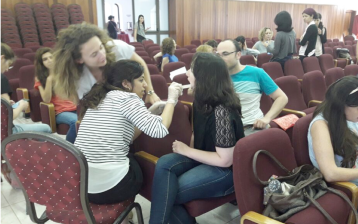
Objectives
- Improving the nutritional status and well-being of the elderly by detecting factors that may impact the patients ability to ingest foods and fluids, referring patients to oral health care professionals and providing the proper nutrition.
- Promoting multidisciplinary team work in implementing the personalised nutrition plan.
Methods
The nutrition focused oral health examination (NFOE) is one of five domains in the nutritional assessment performed by the dieticians. In Israel, dieticians were not trained to perform a NFOE. Prof Riva Touger- Decker from Rutgers University New Jersey who developed the model and training of NFOE conducted three international courses for one hundred and forty dieticians in Israel, mainly working in Geriatric hospitals. The training was followed by five supervision sessions in small groups across the country. We are about to produce an internet movie demonstrating the examination on a patient for dieticians.
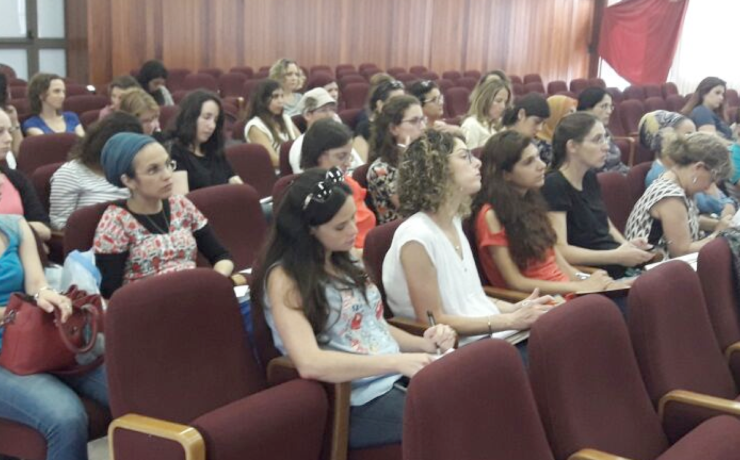
Results
The NFOE led to improved communication and coordination among the multi-disciplinary staff. Main results observed as a result of the process:
- Improved food consumption resulting from the detection and treatment of a fungus on the tongue.
- Providing an additional meal and referral to physiotherapists to strengthen muscles as a result of detecting weakness in the chewing muscles.
- Preventing the insertion of a nasogastric tube for feeding due to low consumption of food which resulted from a fungus on the tongue.
- Treatment of vitamin B-12 deficiency found in a blood test following the discovery of mouth sores.
- In some cases, the dieticians switched to food in a soft texture instead of a ground texture that was previously given to the toothless, with chewing ability, which improved taste and responsiveness to eating.
- Dentists were summoned to treat the elderly who had dental problems.
Conclusions
Oral health assessment by dieticians in Geriatric hospitals, harnesses the multi-professional team to the subject, leading to improved nutritional status of the elderly, quality of life and improved enjoyment of eating. There is room to expand this issue among patients in general hospitals and among chronically ill patients in hospitals and in the community.
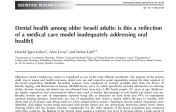
Dental health among older Israeli adults: is this a reflection of a medical care model inadequately addressing oral health?
132.19 KB
Download
Contacts
Professor Ronit Endevelt – Ministry of Health Israel – ronit.endevelt@moh.gov.il
Josefa Kachal – Ministry of Health Israel – Josefa.kachal@moh.gov.il
Galia Shefer – Ministry of Health Israel – Galia@telhai.ac.il

